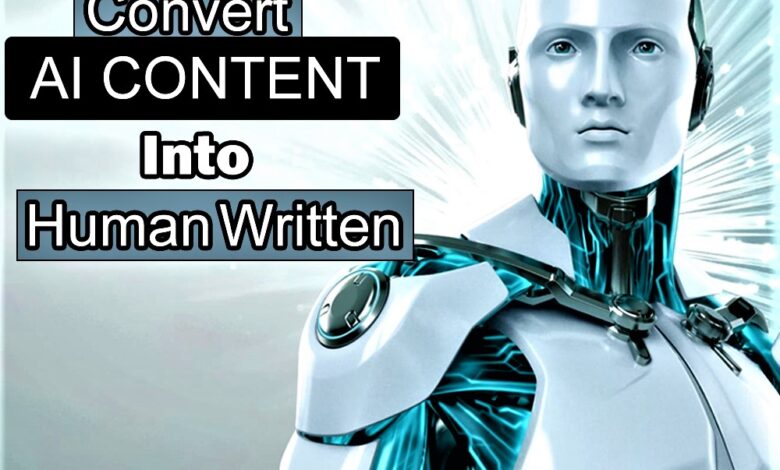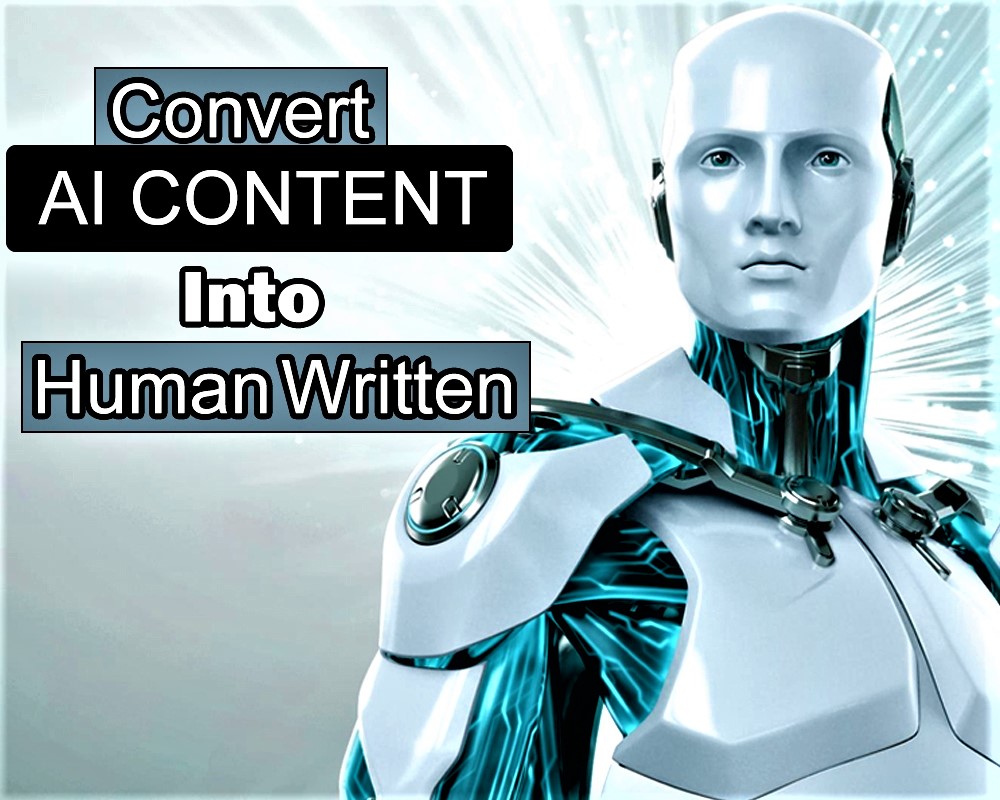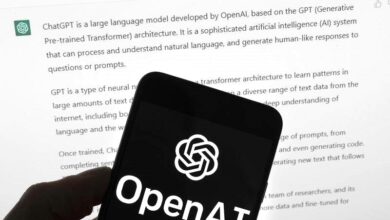AI to Human Text Converter -Kat Technical
How to Convert AI to Human Text - Kat Technical

AI to Human Text Translation, content creation, and customer support are made possible by AI-powered text converters, which use cutting-edge algorithms to comprehend and produce text that sounds like human speech. They provide effectiveness, multilingual communication, and round-the-clock accessibility. But for responsible deployment, ethical issues and constraints like bias and context awareness must be carefully taken into account.

Evolution of AI-Powered Human Text Converters
The journey of AI-powered human text converters can be traced back to the early developments in machine translation and NLP. Initial attempts at translating languages using rule-based systems were limited in their capabilities due to their rigid structures and inability to capture context nuances. However, with the advent of neural networks and deep learning techniques, such as recurrent neural networks (RNNs) and transformers, the potential for more accurate and contextually aware language conversion began to emerge.
The Mechanics Behind AI-Powered Human Text Converters
At its core, an AI-powered human text converter is built upon sophisticated machine learning algorithms that enable it to comprehend and generate human-like text. These systems utilize massive datasets containing a wide array of human-written text, enabling them to learn grammar, syntax, context, and even subtleties of human communication. One prominent example of such architecture is the transformer model, which has revolutionized NLP tasks and forms the basis of many modern text conversion systems.
Applications of AI-Powered Human Text Converters
The applications of AI-powered human text converters are manifold and have far-reaching implications across various domains:
Language Translation:
AI-powered text converters excel at translating text from one language to another with remarkable accuracy, taking into account context and idiomatic expressions.
Content Creation:
These converters assist content creators, writers, and journalists by generating high-quality text based on prompts, reducing the time and effort required for content generation.
Customer Support:
AI-powered chatbots equipped with text converters offer efficient and instantaneous customer support by understanding and responding to user queries in real-time.
Language Learning:
Language learners can benefit from personalized language lessons and practice through interactive conversations with AI text converters.
Data Summarization:
AI text converters can quickly analyze and summarize lengthy documents, making them invaluable in research, legal, and business contexts.
Accessibility:
These converters enhance accessibility for individuals with disabilities by converting text to speech or providing alternative text formats.
Benefits and Advantages
The integration of AI-powered human text converters into our daily lives offers several noteworthy advantages:
Enhanced Efficiency:
Text conversion tasks that previously required substantial human effort can now be automated, leading to increased efficiency and productivity.
Language Barrier Mitigation:
AI text converters facilitate cross-lingual communication, breaking down language barriers and fostering global connectivity.
Consistency and Accuracy:
These systems ensure consistent and accurate language conversion, minimizing the risk of human errors and misunderstandings.

Scalability:
AI-powered text converters can handle large volumes of text conversion requests simultaneously, making them suitable for diverse applications.
24/7 Availability:
AI text converters are available round the clock, enabling uninterrupted interactions and services.
Ethical and Societal Considerations
While AI-powered human text converters offer remarkable capabilities, their proliferation also raises important ethical and societal considerations. Issues such as data privacy, bias in language generation, and potential job displacement for human translators and content creators need to be addressed. Striking a balance between technological advancement and responsible deployment is crucial to harnessing the full potential of these systems without causing unintended harm.
Conclusion
The evolution of AI-powered human text converters represents a significant milestone in the realm of artificial intelligence and natural language processing. These transformative technologies hold the promise of revolutionizing the way we communicate, collaborate, and access information across linguistic and cultural boundaries. As AI text converters continue to advance, it is imperative that we navigate their integration thoughtfully, ensuring ethical considerations and societal implications are carefully weighed to create a future where technology and humanity coexist harmoniously.
Frequently Asked Questions
What is an AI-powered human text converter?
An AI-powered human text converter is a technological system that uses artificial intelligence and natural language processing to convert human-generated text from one form to another. This can include tasks like language translation, content creation, summarization, and more.
How do AI-powered text converters work?
These converters utilize advanced machine learning algorithms, often based on transformer models, to understand and generate human-like text. They learn from massive datasets containing diverse human-written text to grasp grammar, context, and linguistic nuances.
What are the main applications of AI-powered human text converters?
AI-powered text converters have numerous applications, including language translation, content creation, customer support, language learning, data summarization, and accessibility services.
What benefits do AI text converters offer?
These systems enhance efficiency by automating text conversion tasks, breaking down language barriers for global communication, ensuring accuracy and consistency, and offering 24/7 availability for various services.
Can AI text converters replace human translators and content creators?
While AI text converters can handle certain tasks, they may not fully replace human professionals. They can assist and streamline processes but might lack the nuanced understanding and creativity that human experts bring.
Do AI text converters have limitations?
Yes, AI text converters may struggle with highly specialized or domain-specific language, sarcasm, idiomatic expressions, and understanding context beyond their training data.
Are there ethical concerns associated with AI text converters?
Yes, there are ethical considerations, including potential biases in language generation, data privacy concerns, and the impact of automation on jobs in industries like translation and content creation.
How can bias in AI text converters be addressed?
Developers need to ensure diverse and representative training data, implement bias detection mechanisms, and adopt ongoing monitoring and improvement processes to mitigate bias.
Can AI text converters be used for malicious purposes?
Like any technology, AI text converters can be misused for malicious activities, such as generating fake news or engaging in cyberattacks. Ensuring responsible use and regulation is important.
What is the future of AI-powered human text converters?
The future holds potential for even more sophisticated and contextually aware text converters, with improved language understanding, cross-modal capabilities (text-to-speech, speech-to-text), and increased integration into various aspects of our lives.
How can individuals and businesses benefit from AI text converters?
Individuals can benefit from improved language learning tools, access to information in different languages, and enhanced communication. Businesses can streamline content creation, improve customer service, and automate various text-related tasks.
Are there any risks associated with overreliance on AI text converters?
Overreliance could lead to reduced human linguistic skills, loss of human touch in communication, and potential negative effects on industries that rely on human-generated content.
Are AI text converters accessible for people with disabilities?
Yes, AI text converters can enhance accessibility by converting text to speech or providing alternative text formats, making information more readily available to individuals with disabilities.
How can society ensure the responsible development and deployment of AI text converters?
Responsible development involves transparent practices, unbiased training data, continuous monitoring, addressing potential risks, and involving diverse stakeholders in decision-making.
Where can I find AI text converters to use?
AI text converters are integrated into various applications, such as translation services, content creation tools, and customer support platforms. They can often be accessed through websites or applications that offer these services.



